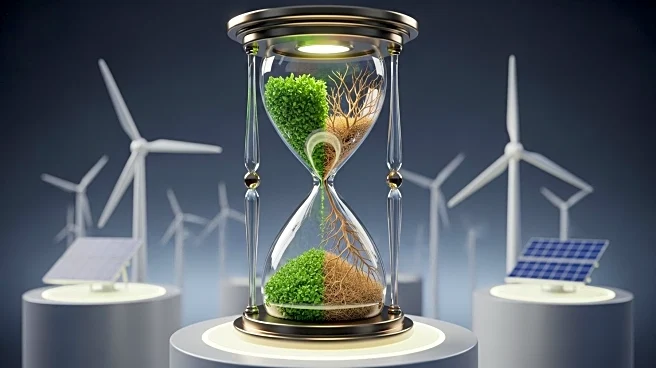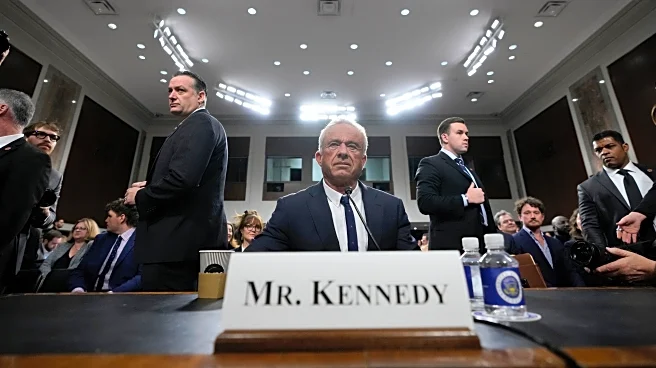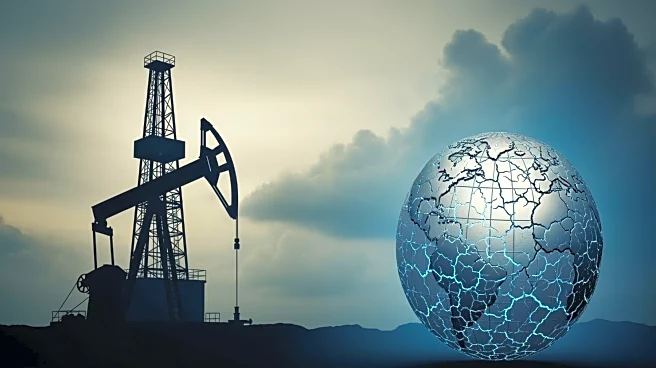What's Happening?
The TIME100 Climate Leadership Forum, held during New York City's Climate Week, featured discussions on global climate action amidst President Trump's recent climate change denialism at the U.N. General Assembly. The forum highlighted the President's rollback of climate regulations during his first nine months in office. Key figures, including Andrew Forrest and marine biologist Sylvia Earle, criticized Trump's stance, emphasizing the real impacts of climate change on vulnerable communities and ecosystems. The event underscored the global commitment to clean energy, with 85% of countries supporting a transition to sustainable power sources.
Why It's Important?
The forum's discussions are significant as they reflect the growing global consensus on the urgency of climate action, contrasting with the U.S. administration's current policies. The criticism of President Trump's climate stance by international leaders and experts highlights the potential diplomatic and environmental consequences of the U.S.'s position. The commitment of other nations to clean energy transitions suggests a shift in global economic and industrial strategies, potentially leaving the U.S. behind in technological and environmental advancements. This divergence could impact international relations and trade, as countries increasingly prioritize sustainable practices.
What's Next?
The forum's emphasis on global climate action suggests continued international pressure on the U.S. to reconsider its environmental policies. As countries advance their clean energy initiatives, the U.S. may face diplomatic challenges and economic competition. The ongoing dialogue at events like the TIME100 Climate Leadership Forum could influence public opinion and policy discussions within the U.S., potentially leading to shifts in legislative priorities or increased advocacy for climate action. Stakeholders in the energy sector may need to adapt to changing global standards and consumer expectations.
Beyond the Headlines
The forum's discussions also highlight ethical considerations in climate policy, particularly the responsibility of developed nations to support vulnerable communities affected by climate change. The criticism of President Trump's denialism raises questions about the role of leadership in addressing global crises and the importance of scientific integrity in policy-making. The event underscores the cultural shift towards recognizing climate change as a critical issue, influencing public discourse and potentially driving long-term changes in societal values and priorities.










